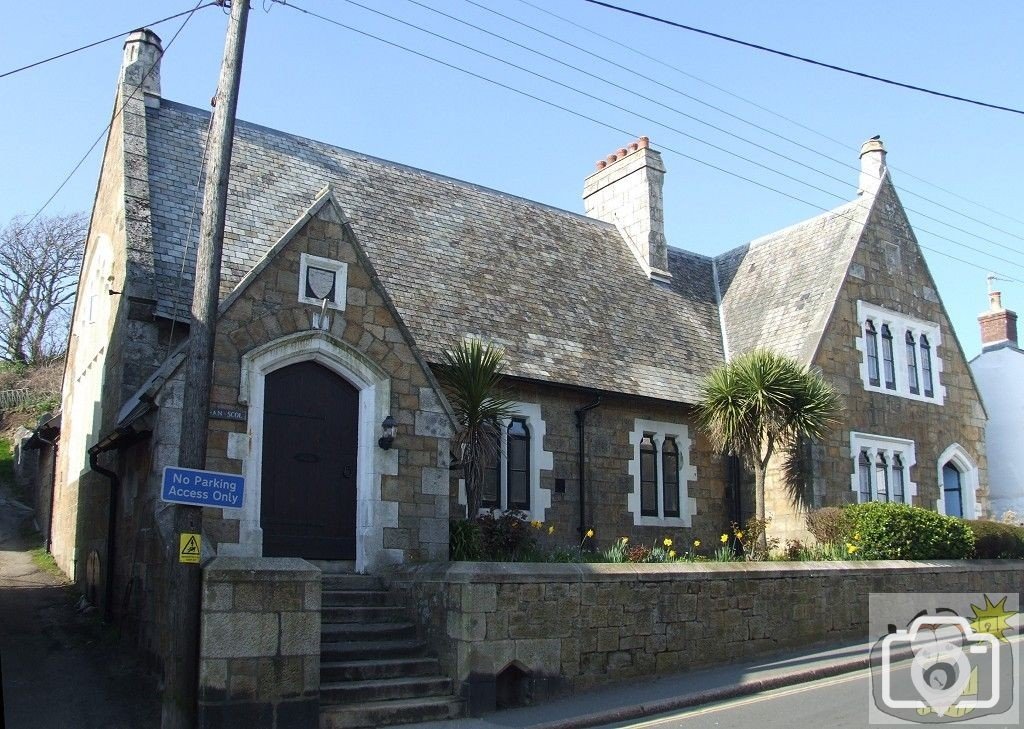You are using an out of date browser. It may not display this or other websites correctly.
You should upgrade or use an alternative browser.
You should upgrade or use an alternative browser.
Built 1862
Marazion 17th March 2009
Captain Francis Cole
Francis Cole was a young midshipman on the JUNO. On that same ship was the young Pellew.
At that time the master, Captain Stott, was in the habit of being rather lax with the rules
as far as himself was concerned, and was accompanied on board by his mistress.
She kept fowl and, whilst at Marseilles, Frank Cole drove the fowl off the quarter deck.
Following words from the woman to the captain, Frank Cole was rebuked and struck physically, then ordered to leave the ship,
whereupon Mr Pellew asked to be also removed.
Lt Lord Hugh Seymour gave them assistance, and they left, a strong friendship was born of this act with two men.
Despite calls to return, from Captain Stott, the two took passage on a merchant ship and eventually landed at Falmouth together.
Later, the ARTOIS Captain Nagle, as part of the Western Squadron under
Sir Edward Pellew took the REVOLUTIONAIRE from the French in a battle of wits, and closely engaged.
Captain Nagle was knighted.
The command of this prize, a frigate 150 tons larger than anything in the Royal Navy, was given to Captain Francis Cole.
Captain Cole then further distinguished himself to his friend Edward Pellew who then wrote a letter to Lord Spencer.
MY LORD I have much pleasure in informing your Lordship of the capture of the French frigate L’UNITE,
of thirty-eight guns, and two hundred and fifty-five men; and I have more in conveying to your Lordship,
my sense of Captain Cole's merit upon the occasion.
Nothing could be more decided than his conduct ; and his attack was made with so much vigour and judgment,
that a ship of very superior force to L'Unite must have rewarded his gallantry.
To his extreme vigilance and zeal, the squadron are indebted for this prize.
It is not improper for me to say, that on all occasions
I have found much reason to respect Captain Cole as a skilful and brave officer,
and I rejoice in the opportunity of bearing testimony to his merit.
To the Earl of Chatham MY DEAR LORD Much as I dislike breaking in upon your time,
I cannot resist the pleasure of repeating to you the good fortune of my friend,
Frank Cole, who was the fortunate man among us in taking L’Unite , alias La Variante.
There are few things, my Lord, that could raise my friend either in your opinion or mine
but one cannot but rejoice on finding our expectations realized.
I am satisfied that nothing could be better conducted than Frank's ship upon this occasion, or courage more coolly displayed;
a proof of which was strongly exhibited in his conversation with a vaunting Frenchman,
boasting of his own strength, and threatening the vengeance of his partner.
It will not be advancing too much when I say, that a ship of far superior force must have shared the same fate.
The French commander complains bitterly of Cole's taking such advantages as his superior skill afforded him.
The Revolutionaire is much improved since her mainmast was moved,
and you will believe her, my Lord, always in good order.
I have with infinite pleasure given my testimony of Frank to Lord Spencer, and I doubt not but your
Lordship will give him a lift in the same quarter.
Captain Cole, though his career had been less brilliant than that of his friend since they parted,
had gained most flattering distinction. His high character as an officer,
and his reputation for peculiar correctness of conduct,
added perhaps to his more than common advantages in person and manners, had obtained for him the honour of being selected,
with the late Sir Richard Keats, to have the particular charge of his present Majesty,
when he first entered the navy, being made lieutenants of the watch in which the Prince was placed.
He was introduced by his royal pupil to the Prince of Wales, who said of him,
they may talk of a cockpit education, and cockpit manners;
but a court could not have produced more finished manners than those of your friend, Captain Cole.
Francis Cole became Captain of EURYDICE, GALATEA and TREPASSEY.
The friendship between Sir Edward and himself had continued from their boyhood,
and they cherished for each other the affection and confidence of brothers.
He died at Plymouth in 1799.
A little before his death, Sir Edward, who had just returned from a cruise, came to see him for the last time.
Now, said Francis Cole, I shall die more happy, since I have been permitted to see once again the dearest of my friends
and when Sir Edward at length tore himself from the room,
unable to control his feelings any longer,
a burst of grief, on returning to the mother and sisters of Captain Cole,
prevented him for a considerable time from regaining sufficient composure to quit the affecting scene.
Raymond Forward
Compiled from The Life of Sir Edward Pellew.
Marazion 17th March 2009
Captain Francis Cole
Francis Cole was a young midshipman on the JUNO. On that same ship was the young Pellew.
At that time the master, Captain Stott, was in the habit of being rather lax with the rules
as far as himself was concerned, and was accompanied on board by his mistress.
She kept fowl and, whilst at Marseilles, Frank Cole drove the fowl off the quarter deck.
Following words from the woman to the captain, Frank Cole was rebuked and struck physically, then ordered to leave the ship,
whereupon Mr Pellew asked to be also removed.
Lt Lord Hugh Seymour gave them assistance, and they left, a strong friendship was born of this act with two men.
Despite calls to return, from Captain Stott, the two took passage on a merchant ship and eventually landed at Falmouth together.
Later, the ARTOIS Captain Nagle, as part of the Western Squadron under
Sir Edward Pellew took the REVOLUTIONAIRE from the French in a battle of wits, and closely engaged.
Captain Nagle was knighted.
The command of this prize, a frigate 150 tons larger than anything in the Royal Navy, was given to Captain Francis Cole.
Captain Cole then further distinguished himself to his friend Edward Pellew who then wrote a letter to Lord Spencer.
MY LORD I have much pleasure in informing your Lordship of the capture of the French frigate L’UNITE,
of thirty-eight guns, and two hundred and fifty-five men; and I have more in conveying to your Lordship,
my sense of Captain Cole's merit upon the occasion.
Nothing could be more decided than his conduct ; and his attack was made with so much vigour and judgment,
that a ship of very superior force to L'Unite must have rewarded his gallantry.
To his extreme vigilance and zeal, the squadron are indebted for this prize.
It is not improper for me to say, that on all occasions
I have found much reason to respect Captain Cole as a skilful and brave officer,
and I rejoice in the opportunity of bearing testimony to his merit.
To the Earl of Chatham MY DEAR LORD Much as I dislike breaking in upon your time,
I cannot resist the pleasure of repeating to you the good fortune of my friend,
Frank Cole, who was the fortunate man among us in taking L’Unite , alias La Variante.
There are few things, my Lord, that could raise my friend either in your opinion or mine
but one cannot but rejoice on finding our expectations realized.
I am satisfied that nothing could be better conducted than Frank's ship upon this occasion, or courage more coolly displayed;
a proof of which was strongly exhibited in his conversation with a vaunting Frenchman,
boasting of his own strength, and threatening the vengeance of his partner.
It will not be advancing too much when I say, that a ship of far superior force must have shared the same fate.
The French commander complains bitterly of Cole's taking such advantages as his superior skill afforded him.
The Revolutionaire is much improved since her mainmast was moved,
and you will believe her, my Lord, always in good order.
I have with infinite pleasure given my testimony of Frank to Lord Spencer, and I doubt not but your
Lordship will give him a lift in the same quarter.
Captain Cole, though his career had been less brilliant than that of his friend since they parted,
had gained most flattering distinction. His high character as an officer,
and his reputation for peculiar correctness of conduct,
added perhaps to his more than common advantages in person and manners, had obtained for him the honour of being selected,
with the late Sir Richard Keats, to have the particular charge of his present Majesty,
when he first entered the navy, being made lieutenants of the watch in which the Prince was placed.
He was introduced by his royal pupil to the Prince of Wales, who said of him,
they may talk of a cockpit education, and cockpit manners;
but a court could not have produced more finished manners than those of your friend, Captain Cole.
Francis Cole became Captain of EURYDICE, GALATEA and TREPASSEY.
The friendship between Sir Edward and himself had continued from their boyhood,
and they cherished for each other the affection and confidence of brothers.
He died at Plymouth in 1799.
A little before his death, Sir Edward, who had just returned from a cruise, came to see him for the last time.
Now, said Francis Cole, I shall die more happy, since I have been permitted to see once again the dearest of my friends
and when Sir Edward at length tore himself from the room,
unable to control his feelings any longer,
a burst of grief, on returning to the mother and sisters of Captain Cole,
prevented him for a considerable time from regaining sufficient composure to quit the affecting scene.
Raymond Forward
Compiled from The Life of Sir Edward Pellew.






